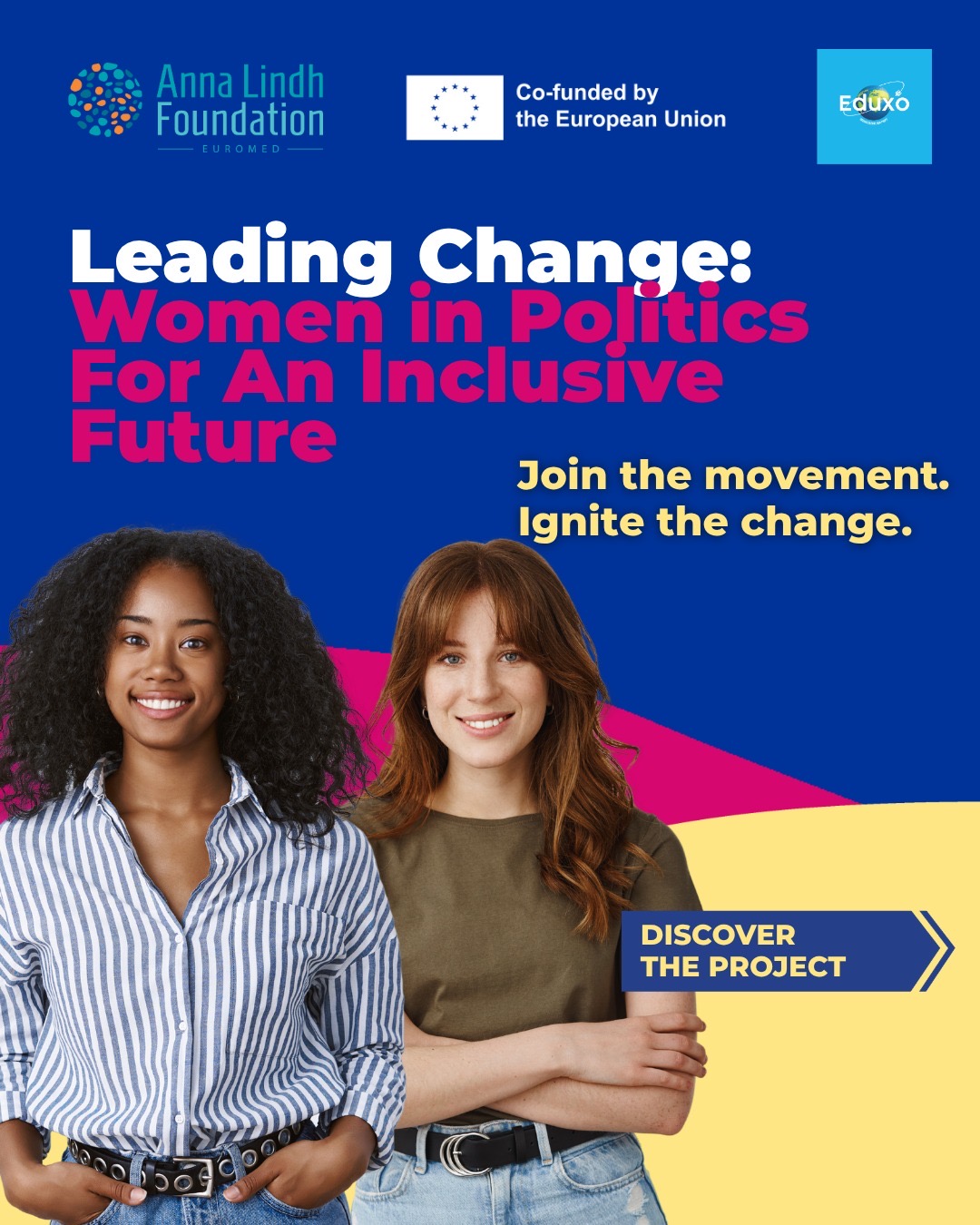In a world where leadership often reflects entrenched stereotypes and exclusionary practices, young women continue to face significant barriers to entering political spaces. The campaign “Leading Change: Women in Politics for an Inclusive Future” emerges as a groundbreaking initiative aimed at dismantling these barriers. It focuses on Italy and Greece, two countries where the minimum candidacy age for public office remains at 25, hindering young leaders from contributing their voices to critical decisions that shape society.
At the heart of this campaign is Isabella Sofia De Gregorio, President of EDUXO and a passionate advocate for youth-led change. Her leadership symbolizes the transformative potential of young women stepping into public life—confidently, visibly, and unapologetically.
The Problem: Underrepresentation and Systemic Barriers
The underrepresentation of young women in politics is not just a statistical anomaly but a systemic failure. Across the Euro-Mediterranean region, cultural, social, and institutional barriers prevent young women from accessing leadership roles. Age restrictions, like the minimum candidacy age of 25 in Italy and Greece, are emblematic of these challenges.
These laws exclude a demographic brimming with fresh perspectives, innovative solutions, and the ability to connect deeply with the aspirations of younger generations. Moreover, these barriers disproportionately impact women from marginalized backgrounds, including those who identify as LGBTIQ+, belong to racialized communities, or have migrant origins.
A Vision for Inclusive Politics
The Leading Change campaign envisions a political landscape where young women are not only represented but are leaders shaping policies that impact their futures. This initiative is not merely about lowering the candidacy age; it is a call to reimagine political systems to be more inclusive, accessible, and representative of society’s diversity.
By focusing on Italy and Greece, the campaign seeks to align these countries with broader EU norms while addressing the unique cultural and institutional challenges of the Mediterranean context.
Campaign Strategies: Building a Movement
The Leading Change campaign is built on four strategic pillars:
1. Empower Through Education
Political literacy is often inaccessible or overly complex for young people. This campaign tackles that gap by developing a comprehensive suite of digital educational tools. These include:
- Explainer videos breaking down political systems and processes.
- Infographics highlighting disparities in representation and candidacy laws.
- A digital mentorship program connecting young women with experienced leaders in politics and civic life.
Through these resources, the campaign equips young women with the knowledge and confidence to step into leadership roles.
2. Engage Through Community
The campaign creates vibrant online spaces for dialogue, connection, and support. Using interactive formats like social media challenges, live-streamed discussions, and Q&A sessions, the campaign fosters a sense of belonging and mutual empowerment among participants.
Particular attention is given to underrepresented groups, ensuring that racialized, LGBTIQ+, and migrant youth feel seen and heard.
3. Advocate Through Action
At its core, Leading Change is an advocacy movement. It mobilizes young women to take concrete actions, including:
- Supporting petitions and legislative reforms to lower the minimum candidacy age.
- Engaging in digital lobbying campaigns targeting national and EU institutions.
- Participating in consultations and public forums to amplify their voices.
By bridging the gap between grassroots activism and institutional change, the campaign ensures that its efforts result in tangible outcomes.
4. Communicate for Impact
The campaign employs a multichannel communication strategy to maximize its reach and impact. Platforms like Instagram, TikTok, and YouTube are used to deliver emotionally resonant, visually compelling content.
Key messaging emphasizes that leadership has no age limit, showcasing young women as dynamic, capable leaders ready to contribute to political life.
The Role of Storytelling
Central to the campaign is the power of storytelling. Through personal narratives and lived experiences, young women from diverse backgrounds share their journeys of overcoming barriers and aspiring for change. These stories humanize the challenges of political exclusion while inspiring others to join the movement.
By leveraging storytelling as a tool for advocacy, the campaign challenges stereotypes and fosters empathy across audiences, transforming personal experiences into powerful drivers of social change.
Goals and Impact
The campaign sets ambitious yet achievable goals:
- Reaching over 100,000 young people online.
- Building a community of 500+ active participants.
- Securing 5,000 signatures for the candidacy age petition in Italy and Greece.
- Facilitating 30 mentorship matches and conducting 30 sessions with female leaders.
- Creating 20 high-quality educational resources, including videos, toolkits, and infographics.
In the long term, the campaign aims to see legislative reforms in candidacy age, enhanced civic literacy among Mediterranean youth, and the establishment of lasting networks that promote gender-inclusive leadership.
Intersectionality at the Core
An intersectional approach ensures that no one is left behind. The campaign prioritizes inclusivity by addressing the unique challenges faced by women who are marginalized due to race, ethnicity, migration status, disability, or gender identity. This commitment is reflected in every aspect of the campaign, from its ambassadors to its messaging.
A Call to Action
The Leading Change campaign is more than a communication initiative—it is a movement for systemic transformation. By empowering young women, fostering inclusive communities, and advocating for structural change, it paves the way for a more equitable and representative political future.
As Isabella Sofia De Gregorio emphasizes, “This is not just about lowering an age limit; it’s about breaking down barriers and proving that young women are not the leaders of tomorrow—they are the leaders of today.”
Join the movement. Advocate for change. Together, we can build a future where every young woman knows her voice matters, her vote counts, and her leadership is essential.

